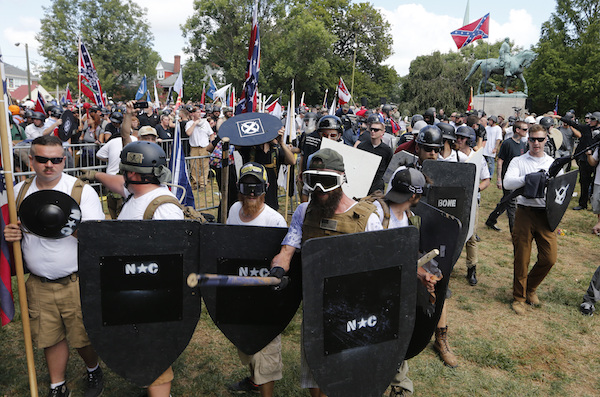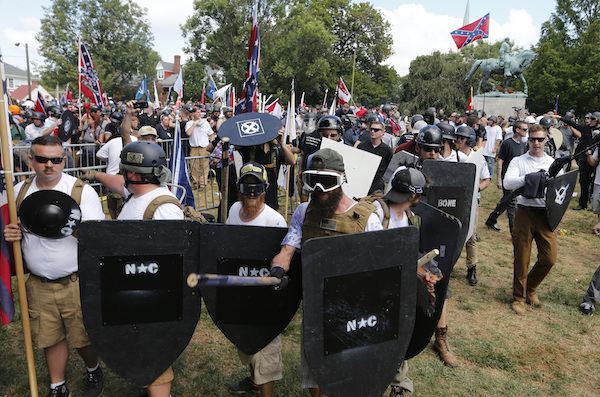
BY MAX BURBANK | Growing up, everything I knew about being a Jew came from Woody Allen films and the movie version of “Fiddler on the Roof.” Sad, right? No Zero Mostel for me, my Tevye was Topol, for Christ’s sake! (See what I did there? Apparently, Jesus was a Jew. A lot of people don’t know that.) The whole Woody Allen thing is admittedly a little tainted now, but you’ll have to forgive me — I didn’t have a time machine.
I was raised by secular Jews in Massachusetts, one of only two Jewish families in town, and the Silvermans didn’t care for us. Anti-Semitism wasn’t something I ran into that much. To the other kids, Jews were obscure, robe-and-sandal creatures found mostly on Sunday school felt boards. Oh sure, I’d hear the occasional “Don’t be such a Jew” or “He Jewed me down.” One time, classmates threw pennies at me in the hallway, shouting, “Chase the penny, Jew!” Okay, I guess that’s pretty overtly anti-Semitic when you think about it. At the time it just seemed on par with the wedgies and locker-stuffings I got for all the other ways I was different — talking about “Star Trek” too much, eagerly sharing my rote memorization of Tom Lehrer’s entire song catalogue… which, now that I see it in writing, also seems maybe a little Jewy.
I identified as Jewish growing up, of course I did. I am. My parents are Jews, my grandparents. I didn’t go to Hebrew school and I didn’t have a bar mitzvah, but that doesn’t un-Jew me. All my life people said, “If you don’t practice the religion, how can you be Jewish?” the same way they said, “You can’t eat bacon. You’re a Jew!” like it was a physical impossibility. I’d explain as patiently as possible that Judaism is a religion and Jews are a people. Full disclosure, I don’t know if that’s correct. Also, I don’t really care.
I’ve always liked being a Jew. It justifies a lot of my funny, slightly paranoid, sometimes standoffish personality and also my love of run-on sentences and habitual interruption of people (which I think of as just the natural flow of conversation, so when people give me a hard time about it they are really just being anti-Semitic). I stole that last joke from my oldest daughter, but she’s only half-Jewish (and I would have thought of it eventually).
Beyond all that, I didn’t spend a whole lot of time pondering my Jewish-American identity. I didn’t have to. I had that luxury.
I grew up thinking that Jew-hating in America was for the most part a historical relic. I mean, I didn’t imagine everybody was all, “Oh, boy, Jews!” I just assumed that classic, old school, anti-Semitic conspiracy theories about hook-nosed Jews managing vast banking cabals, secretly controlling the media and Hollywood, and cackling maniacally while quaffing Christian baby blood by the liter had gone the way of the passenger pigeon and the rotary phone. I pooh-poohed Jewish friends who saw anti-Semitism lurking behind every corner like it was the solution to Einstein’s unified field theory.
Charlottesville changed all that. Or Charlottesville was the final, undeniable proof that everything had changed. Or nothing had changed, I’d just been wrong my whole life. A rock that had always been in our backyard had been turned over, revealing about a million squirming Nazi bugs. And the President of the United States was telling me that sure, some of those Nazi bugs were bad, but many of them were very fine bugs.
My grandfather on my dad’s side fought in World War II. He gave me a German helmet with a bullet hole in it he said he’d put there, but I always thought that was a lie. He was one of the first American doctors into Auschwitz. He never talked about it. Smuggling cases of whiskey on supply flights he talked about, but not a word about the camps. My grandmother reportedly said once (and only once) that her husband had come back from the war different. Some things don’t get talked about, like what you saw in the war or what is was like to speak for your parents because they only spoke Yiddish, or why you fled Russia in the first place. I always imagined it was because of what happened at the end of “Fiddler on the Roof.” I have no other way to imagine it.
When my dad was a kid running around Brooklyn, his dad was away fighting Germans — some of whom were, I have no doubt, “very fine men” who’d spent the last several years rounding up Jews from all over Europe. Now, here in the United States, we’re quite a ways away from doing anything remotely like that. But we’re a good deal closer than I ever imagined possible just a year ago.
I hope I’m wrong. Just before I turned this column in, I stood on the Boston Common with my family, a few friends, and tens of thousands of people I had never met to protest a “free speech” rally whose guest list leaned heavily toward… well, let’s say Nazis so I don’t have to get into the finer distinctions of the particular ways in which they hate other folks. See how I demonstrated my right to free speech there? They huddled together in what could have passed as the gazebo from “The Sound of Music,” all 50 or so of them, and I imagine they were afraid to be surrounded by a massive crowd that really didn’t like them. Wouldn’t it be great if there were a lesson they could take away from the experience?
But that was Boston, not Charlottesville. I love my bubble, and I hope its skin is more like steel than soap, but it’s a bubble.
I loved not thinking about things like this. I loved raising my kids certain they’d never worry about this bizarre hatred, as it faded further and further into the past until it was just a story, like Passover, which I’m stupidly now realizing is exactly the opposite of what the Passover story is supposed to teach you.
I’m used to the full bucket of white privilege, but I find myself missing the cream, where I never had to think at all about my own race. I liked not thinking about it, and missing it makes me feel small and petty and naïve, like a Republican who changed his mind about marriage equality, but only after finding out one of his grandkids was gay.
Apparently, Nazis don’t think Jews are white. I mean literally. I don’t know what the hell color they think our skin is, I guess it’s like camouflage, another nefarious Jew trick. It’s okay, though. If white only comes in a polo shirt, khakis, and a Tiki torch accessory, I don’t want it.
I hope we’re Rose gold. I’d eat that color up with a frikkin’ spoon.































